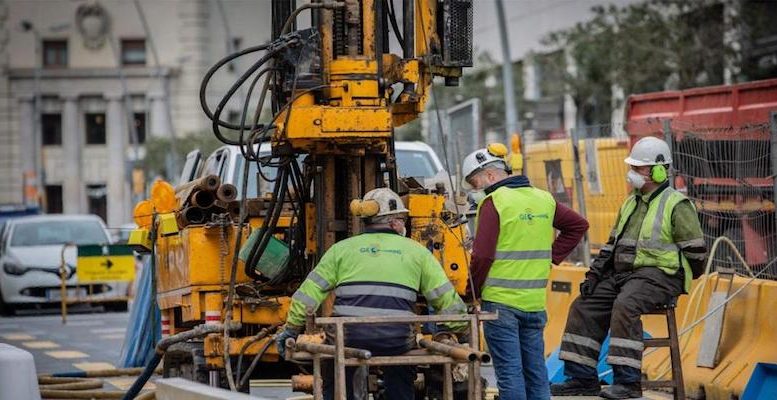The Association of Infrastructure Construction and Concession Companies (Seopan) has warned that up to 20.5% of concession contract tenders in Spain, already practically non-existent, remain deserted after no companies bid for them.
The document highlights the scant relevance of concessions in Spain, representing only 3.4% of contracting, with an average of 1.9 bidders per contract and 2.2% of contracts not being awarded due to the withdrawal or resignation of the successful bidders.
The president of Seopan, Julián Núñez, regretted that the prices of construction materials and energy have remained at levels much higher than those of three years ago. Specifically, with respect to 2020, in December 2023 cement, copper and corrugated steel increased by 43%, 41% and 37%, respectively, and gas and electricity by 207% and 134%.
“This inflation continues to condition the execution of public works and limit their competition, and it is necessary to re-establish in the specifications the obligatory nature of the price revision procedure, abolished in 2015 by the De-indexation Law, as well as to eliminate the revisable limit of 20% of the contract price, which in 2023/2024 has implied €471 million of non-revisable costs borne by the sector in State works,” it has specified.
Looking ahead to 2024, Seopan foresees “a drastic reduction” in public works tenders, following the end of the European funds tendering programme, which accounted for 13.4% of civil works tenders between 2021 and 2023.
With regard to public investment, Eurostat certifies insufficient levels of public investment in transport, water treatment and water supply infrastructures in 2022, with figures 46%, 57% and 57% lower, respectively, than in 2010.
With all this, the employers’ association estimates that public investment needs for the creation and modernisation of infrastructure in Spain are at least €240,000 million until 2030, in basic areas related to passenger and freight mobility (€112,000 million), water and the environment (€64,000), and energy infrastructure associated with networks, civil works and energy efficiency (€54,000).
In this regard, the European Commission’s projections for 2024 and 2025 place Spain at the bottom of the EU investment ranking, thus widening the gap between the country and its main European competitors.





